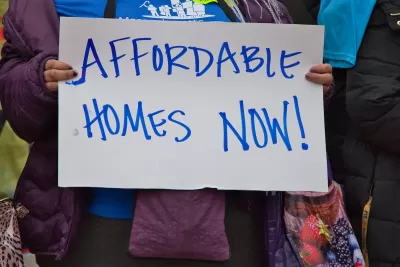A recent study reveals how decades of policy missteps, demographic shifts, and economic forces fueled America’s housing crisis, leaving millions — especially millennials — struggling amid rising demand, racial disparities, and climate-driven emergencies.

A University of Southern California (USC) study highlights how policy missteps dating back to the early 2000s created the foundation for today’s housing crisis, with severe consequences for millennials and communities of color. Researchers traced the origins of the crisis to overcorrections following the 2008 housing bubble burst, including stricter credit rules and underfunded construction, which failed to meet the growing housing needs of the millennial generation. The report emphasizes that the ongoing housing shortage — exacerbated by natural disasters such as wildfires and hurricanes — demonstrates the fragility of the current housing supply, which intensifies displacement and gentrification.
Key contributors to the crisis include underestimations of millennial demand, miscalculations of demographic trends, and flawed measurements of housing needs. For example, policymakers overlooked how a 32 percent rise in birth rates from 1976 to 1990 would translate into increased housing demand as millennials reached home-buying age. The study also details how these missteps led to a cascade of shortages, from rental housing to homeownership opportunities, delaying millennials’ entry into the market and fueling surges in demand after 2015.
Racial disparities in homeownership were another significant finding, with Black Americans facing the largest gaps in recovery from 2008. While Hispanic homeownership surpassed expectations by 2021, white and Black Americans remained below anticipated levels, highlighting systemic barriers and the uneven impact of the housing crisis. Researchers argue for targeted interventions to address these disparities, calling for equitable housing policies that prioritize accessibility for underserved groups.
To address the ongoing challenges, the study recommends more proactive housing policies that account for population growth, demographic shifts, and climate change-driven emergencies. By shortening the lag between demand and supply and integrating population and housing data, policymakers could better prepare for future needs and mitigate the crisis. Without such measures, the housing crisis will continue to worsen, leaving communities vulnerable to displacement and economic instability.
FULL STORY: Long before the L.A. fires, America’s housing crisis displaced millions

Trump Administration Could Effectively End Housing Voucher Program
Federal officials are eyeing major cuts to the Section 8 program that helps millions of low-income households pay rent.

Planetizen Federal Action Tracker
A weekly monitor of how Trump’s orders and actions are impacting planners and planning in America.

The 120 Year Old Tiny Home Villages That Sheltered San Francisco’s Earthquake Refugees
More than a century ago, San Francisco mobilized to house thousands of residents displaced by the 1906 earthquake. Could their strategy offer a model for the present?

HSR Reaches Key Settlement in Northern California City
The state’s high-speed rail authority reached an agreement with Millbrae, a key city on the train’s proposed route to San Francisco.

Washington State Legislature Passes Parking Reform Bill
A bill that would limit parking requirements for new developments is headed to the governor’s desk.

Missouri Law Would Ban Protections for Housing Voucher Users
A state law seeks to overturn source-of-income discrimination bans passed by several Missouri cities.
Urban Design for Planners 1: Software Tools
This six-course series explores essential urban design concepts using open source software and equips planners with the tools they need to participate fully in the urban design process.
Planning for Universal Design
Learn the tools for implementing Universal Design in planning regulations.
Ada County Highway District
Clanton & Associates, Inc.
Jessamine County Fiscal Court
Institute for Housing and Urban Development Studies (IHS)
City of Grandview
Harvard GSD Executive Education
Toledo-Lucas County Plan Commissions
Salt Lake City
NYU Wagner Graduate School of Public Service





























